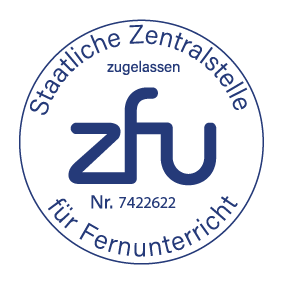Green Hydrogen and Renewable Power-to-X Professional






The Green Hydrogen and Renewable Power-to-X Professional (PtX) Online Programme covers the most important technical and economic aspects of PtX applications such as hydrogen, heat pump technology, and e-mobility. Key PtX terminology, the current economic context, and recent developments of PtX are explained. Participants will learn about energy storage and artificial intelligence in the energy sector as well as about which set of parameters are used to assess the bankability of energy projects and understand a banker’s perspective of risks. A calculation exercise on green hydrogen generation cost is part of the programme.
Mandatory courses in the programme:
- Power-to-X (PtX): Applications and Cost Developments
- Energy Storage: Application and Technology
- Heat Pumps for Heating and Cooling: Technology and Applications
- Introduction to Hydrogen
- E-mobility for Private Transport and Charging Infrastructure: An Introduction
- Co-benefits of Artificial Intelligence (AI) in Renewable Energy
- Renewable energy feasibility assessment and investment valuation
- Renewable Energy Project Finance
To supplement the learning experience, participants will have access to optional introductory courses on energy and electricity topics. These courses are not mandatory, do not contain assignments, and will not be covered in the exam. Participants new to these topics would benefit from reviewing the content in these courses.
Optional courses in the programme:
- Introduction to Electricity
- Introduction to the Solar Resource
- Planning of Large-scale Grid-connected PV Systems
- Introduction to Wind Resource
- Wind Power Planning and Measurement
Receive a reminder one week before the registration deadline.
After completing these courses, participants should be able to:
- explain the purposes and potential of the Power-to-X (PtX) concept;
- compare applications and technologies in energy storage;
- describe the opportunities hydrogen offers as an energy carrier for a sustainable energy future;
- explain and evaluate economic and environmental parameters of heat pump technologies and their applications;
- explain passenger car e-mobility and its implications for the distribution grid;
- access the role of artificial intelligence technology to improve the renewable energy sector;
- collect and prepare data required for a bankability assessment; and
- calculate relevant economic parameters of green hydrogen.
Participants who successfully pass the exam at the end of programme will receive a RENAC certificate. All other participants will receive a Certificate of Attendance if they have completed all the self-tests contained in the mandatory courses.
Duration: 6 months
Study time: About 120 hours for mandatory courses; an additional 50 hours if optional courses are taken.
Programme language: English
A detailed programme brochure is available for download.
E-learning platform: Access the demo course on our e-learning platform.
Price: 2,035.00 €*
Contact
For learning platform support:
Cintia Guerrero
Online Academy Manager
Tel:+49 30 587 08 70 03
Email: onlineacademy(at)renac.de
For Renewable Power-to-X Professional Training Programme content inquiries:
Albrecht Tiedemann
Project Director
Tel: +49 (0)30 58 70870 40
Fax: +49 (0)30 58 70870 88
Email: tiedemann[at]renac.de
*incl 19 % of German VAT
Certificates

Highlights
- Flexibility to study at any time and from any location
- RENAC content expert and learning platform technical support
- Moderated discussion forum for students
- Live lectures
- Multimedia learning materials
- Self-assessments, assignments and final exam
- Certified by the Staatliche Zentralstelle für Fernunterricht - ZFU (German Authority for Distance Learning)
- RENAC certificate upon successful finalisation of the programme
- We offer discounts for our alumni, group bookings, and multiple purchases. Contact us for further details.
____________________________________________________________________________________
Contact
Cintia Guerrero
Online Academy Manager
Tel:+49 30 587 08 70 03
Email: onlineacademy(at)renac.de
Lecturers

Current position:
Albrecht Tiedemann heads the Green Hydrogen, Climate Policy, and Renewables Grid Integration division at RENAC. He manages international capacity development programmes on green hydrogen, energy transition, and Power-to-X (PtX) for applications professionals in the public and private energy sectors. As an experienced educator and trainer, he designs and implements blended learning seminars covering green hydrogen project development, renewable PtX pathway assessment, grid integration of photovoltaic and wind power, and wind farm economics and technology. Albrecht also moderates and chairs panel discussions, workshops, seminars, and conferences.
Professional experience:
Albrecht has been highly involved in integrating renewable energies into the German energy supply system and conducting strategic energy transition analyses for the German energy sector. Before joining RENAC, he was a project director at the German Energy Agency (dena) GmbH, where he also worked as a consultant for the German Federal Ministry of Economics & Technology, the Federal Ministry for the Environment, the European Commission, and enterprises in the energy sector. Furthermore, he was the chairperson of the Offshore Wind Standing Committee of the Federal Government and the Forum Offshore Wind Energy and Nature Conservation. Albrecht was also a scientific assistant for the Federal Environmental Agency of Germany, responsible for developing environmentally friendly technologies.
Education:
He holds an Engineer for Environmental Technology degree from the Technical University of Berlin.


















The trainers were not only knowledgeable but also very supportive throughout the programme. They were always available to answer questions and provide clarification where necessary, which made learning much easier and enjoyable.
One of the things I appreciated most about this training programme was the practical nature of the training. The programme went beyond just discussing theoretical concepts and provided practical examples and case studies. This gave me a clear understanding of how RE technologies are being used in the real world and their potential for application in future projects."